Video
Reframed - Everybody Hates Johan
Reframed by
Attitude FoundationEverybody Hates Johan
27 mins
Jason Clymo, Robyn Lambird, and special guest Sam Drummond discuss the film Everybody Hates Johan.

Jason Clymo, Robyn Lambird, and special guest Sam Drummond discuss representation in the film Everybody Hates Johan.
Jason 00:00
Coming up on Reframed. Along with this week's special guest, Sam Drummond. Today we'll be discussing the film Everybody Hates Johan.
Sam
that if it happened in the US or Australia, we would have highlighted it and this is a disdainful experience.
Robyn
And it's like, yeah, well, we're all a little bit blown off, aren't we?
Jason
There's something like a little disabled doesn't mean much in the big picture. And I'm like, I just don't know how I feel about that.
Sam
you know, people would shout out at the bar or out at their car. You know, oh look, it's Mini Me and, you know, that those roles that's fine.
Jason
Welcome back to Reframe, the podcast that reframes how disabilities portrayed in film and TV. I'm your host, Jason Climber, and today I have Rob Lambert with me as my co -host, along with this week's special guest, Sam Drummond. Today we'll be discussing the film Everybody Hates Johann, but before we do, let's say hello to Sam and learn a little bit more about them. So welcome to podcast, Sam. Did you want to just start off by telling us all a bit about you and what you do?
Sam 01:07
Yeah. Thanks for having me on the program. So I am a lawyer and author and have worked a lot in media, so mostly radio and community radio and commercial radio and also at the ABC for a little bit and have moved on to use my actual training, which is discrimination in human rights law. And also wrote this book, which is Broke, and Broke is about growing up with a disability in a small country town in a non -traditional family, which essentially is why I chose this film. Because even though the film that we're going to talk about is set as far away as you can get without before you start coming back, it's got a lot of those themes coming through it.
But it's small country town, people with difference, all sorts of strange relationship dynamics. So I managed to get that into a book, and then I saw a film with similar things. So I'm really excited for this channel.
Jason
Love it. It was a very interesting watch and I'm excited to dissect it.
Robyn
So it sounds like you've had quite an extensive background in the media, like you said, working for ABC and a few other organisations. But why do you think it's particularly important to have representation in front of the camera, behind the camera and in the media?
Sam 02:46
Yeah, so growing up, I didn't see, it's wrong to say that I didn't really representation of me. I have a thought of dwarfism and there's plenty of media representations of people with dwarfism around, but they're so often portrayed as very simple characters, simple emotions, white, white, seven dwarves, they just have one emotion, one aspect. And so they're not complex characters. I think the first movie I ever saw was Charlie and the Chocolate Factory and then there's all these strange orange -based people over there, over the other side of the chocolate river from the humans. And quite misunderstood, I guess. There's no real interaction between people and people with dwarfism. So that is what I saw as a young kid and then as a teenager, a while came Minimi. So here was this hypersexualized character.
I come from watching characters who were the single emotion and very non -sexual being, I suppose, to this hypersexualized, non -verbal, non -really thinking, just a follower. And that followed me around for the next couple of decades, I reckon. People would shout out at the bar or out of their car, oh look, it's Mini-me! And those roles define people. They don't just stop at the actor that you see in the film or on the TV screen. They define every single person who might look remotely like that or remind people of that.
And it's only in the last few years that we've seen that started to change. And I think a really big thing was Game of Thrones and Peter Dinklage, where there's this really complicated character, not a good character, really, but has positives and negatives and is flawed, but also is the hero in some respects. And so suddenly you start getting this nuance and people start seeing me as a nuanced person. That's my experience. And I think people with different disabilities have slightly different perspectives because their disabilities are seen differently.
But the more representation that we have, the more acceptance that we have. And I think for myself, I got into radio after I left school and it was almost hiding myself because I got to get behind a microphone and people listening at the other end were hearing this Australian accent that's somewhere between a Sydney country Victorian accent and a Melbourne accent. And that's where what I was being judged on and the content of my words. And it wasn't... I haven't done a lot of TV, but I've done a little bit and that was a really big step as well because suddenly I was visible and perhaps not as noticeable as some other disabilities, but still, you know, putting myself out there and TV like to do how to ways where I'm walking down the street.
But I'm also hiding behind the desk. And the other sort of accent of the vast majority of people in our community. And that can be even harder for someone who might come from a migrant community with a disability and they wouldn't be able to hide like I did. So all of this is like a step by step me revealing myself and saying, hey, this is me and I'm proud of myself. And you can judge me by the content of my words and not by those media representations that you're all going up with.
Jason 07:33
as well like what you've just shared is such a like I want to say this in a way that actually makes sense for listeners but it's a really obvious example like such a clear example of how media representation over time getting better has actually changed people's experiences in real life in the community. And I was really excited to talk to you about this and I'm like glad that you brought up those examples of like Oompa Loompa's and Mini Me because over time it has improved still so so far to go as we'll discuss but you know I'm sure when you were younger as you've said like people would probably just point at you and assume or just I don't know whether it's teasing.
I think adults should know better and they probably are pointing at you teasing but kids like they don't know better and so if the only example that they have seen of someone that looks like you is, you know, one of the seven dwarves like they're going to just click straight away in their brain without even really thinking much more about it and go like oh there's grumpy or something like do you know what I mean. Whereas now, like what you said like when you've got those big productions like Game of Thrones is Peter Dinklage like amazing like complex characters breaking down all those stereotypes. Awesome. And then that trickles down into kind of like the everyday sort of representation in you know programs like play school.
That's where like the actual real community impact happens you know things like Game of Thrones I think impacts people of kind of like our age and above so you're like 20s and above like people that actually watch those shows yep sure but it's the kids like I find like kids programs and kids films and kids shows when they do disability representation right I just get like pumped like I'm like yes. Like this generation is growing up with out so much of the crap that our head was like heads were filled with in terms of what disability looks like what disability is what people with disability are capable of like all of that.
Sam 09:38
That's the importance of media because I see it, my daughter's in three -year -old window right now and this is the time to open their worlds up to diversity. And whether that's people of different genders or people from different racial backgrounds or cultural backgrounds, religious backgrounds and disability. And I'm really lucky to live in multicultural community and people from all walks of life. But I see it, I saw it at the start of the year when I'd go into the room and these three and four-year-olds would come up to me and say, why are you so small? Why, you know, I'm nearly your height. Are you really a grown -up? Are you make -believe or whatever they might say? And there's a I'm hearing it more and more in the community. It's taken me years to work out the variations of, well, everyone's different and it would be really boring if we're all the same.
Not everybody is lucky enough to have that diversity within their own communities. And the only way that we can get that acceptance is through broad media, whether that be mainstream media or the Internet or book. And there are these really, really good resources now where you can search out for diversity and you can search out those TV shows or kids' films or books that have done a really great job at diversity. And suddenly it's normalized for those kids and they just want to play or they want to play in the sandpit with you. And once they play in the sandpit with you, then you know that things haven't gone right is when there's a seven or eight year old and they can start, I guess, really laying it on thick and not accepting an answer of, but we're all different because they haven't been able to ask those questions yet.
And once they get to seven or eight, those views start getting entrenched and you can see the 17 or 18 year old at the bar or with their P plates winding down their windows yelling at people down the streets. Like we have to get this young and film and media is the way to do that on a broad,
Jason
Okay, well now I think it's time to talk about our feeling for today, which I'm excited. I feel confused of so many conflicting feelings. Loved it. It was actually, you know, anyway, we'll talk more. But Robin, before we get into analysing it, can you just give us a bit of a rundown of Everybody Hates Your Hand?
Robyn 12:38
Yeah, so the movie follows this guy called Johann. He's a little bit of an oddball, a bit of a loner in his small town. He grew up in this family that was famous for blowing things up because they used to blow up bridges to keep the Nazis out of, which were the Germans, out of the town. And because of that, he's got this affinity for dynamite. And anyway, it ends up that his friends over, they try and blow something up and it goes a bit wrong. And obviously she ends up with disability.
She's an amputee and a wheelchair user and has some facial difference. And this just makes his community hate him even more. So he leaves and goes to America. And then the film really follows him 15 years later when he comes back to the town and then sort of trying to rekindle this relationship with S�lwba.
Jason
Yeah, it was a really interesting one. I can't remember the last time I watched like a Scandi type film like this. It was actually so fun. And when you first suggested it at Sam, I was like, oh my God, I'll be honest. I was like, is this really gonna work? And then looked into it more. And then we obviously had a bad conversation Sam where I was like, is actually just a disability representation. Yeah, I can't find like anybody talking about this. And you're like, yeah, there is stick with it. And then I was like, right.
Sam 14:08
I think that was really interesting. Nobody's talked about this from a disability perspective. But for me, that was key part of the film. But if you look at the reviews, they won't even mention it, or they might mention an accident in passing.
Jason
Do you think like maybe it's a bit like disability erasure or that it's just like so like they're a bit more normalising disability for lack of a better term that then sort of what we would in Australia and the US and the UK that they just don't feel the necessary to like mention...
Sam
...it happened, that's right, that it was just so incidental to the story from their perspective that if it happened in the US or Australia, we would have highlighted it as this is a disability film. This is why I like Scandi Cinema is because as you said, there are so many conflicting thoughts and it's not neatly packaged. Scandi Cinema don't like a neat ending or even a neat storyline. And I think that was really clear here, including in the disability representation. I think one of the first things we need to get out of the way is that Solver, the person who acquires a disability, the love interest of Johann is played by I think three different actors.
There was an opportunity to cast an actor with disability to play her as an adult and make them do it. So it loses points straight away on that. But then it's portraying Solver, I'm going to get to Johann in a little bit as well. But you mentioned that there are two things. Solver acquires two disabilities through the explosion and one is facial difference and one is as she becomes an amputee and uses a wheelchair. And I think in a small town, there's a disability, or putting her away and saying there's the person with the disability. I see her role as actually her locking herself up and the townsfolk don't actually do that to her. They are quite accepting of her. And we see that through their relationship as well. She's Johann very much born through the relationship with Solver. And she is saying, I wrote down a quote that she said that I've never liked you and you're not my type.
Jason 17:06
She is savage.
Sam
But you think that there's still some sort of spark there, but she is trying to let him down. I think because she's protecting herself. And there's such complicated things around disability and relationships, particularly when there's someone without a disability and someone with a disability in the relationship. And you try and work out whether that's creating a power dynamic. I think Solvar actually creates a power dynamic where she has the power. And I think that's really good and a real win. But I also feel sad that these are meant to be life partners and she's turning herself away from that because she thinks that some sort of, I think deep inside, and this is what I got, maybe you have a different interpretation, but she thinks that some sort of deficit and she's protecting herself from that deficit or something like that.
Jason
Fully agree with you and this is why I had so many conflicting feelings because it was like moments and you pretty much like I feel like really explained quite eloquently that what I had written down in my notes of like how am I going to explain this like this I've got so many conflicting thoughts I think you've actually just explained it so eloquently so well done. But yeah, there were moments where I was like, okay, cool, like she's not this, you know, desperate person where anybody who shows her any interest is like, oh, yes, please, because we've seen that before as well.
She's also not needing to be saved, which is what I also liked. Like, your hand isn't coming back to like rescue her from anything. And like you've said, she actually is in a position where she has the power in the relationship, and she does deny him many times, and she's pretty savage about it, which is actually quite entertaining to see as well. But then exactly like you said, like I feel like she has this really strong internalised ableism. And I think that was the thing that I noticed throughout all of it, is that actually, the only kind of main form of ableism that I noticed in in the film was her own internalised ableism, nobody else gave a shit.
Robyn
Yo Han has a conversation with Ann at one point where he's like, you know, I don't care what happened Like I still love her and his aunts like yeah, well, we're all a little bit blown up Aren't we like we've all got like our own things going on Yeah, pretty interesting way of looking at it, I guess
Sam
And that parenting, I think because the mum is the only one who seems to have any qualms, that except for Solva, who seems to internalise it possibly from her own mum, that's reality, right? We see parents putting their own stamp on disability all the time in our community.
Jason 20:06
There was one part that I just like really don't know how I feel about it. I'm gonna say I'm gonna be kind of remember this part. But at one stage like, Johan's like father figure and I've forgotten his name. He says something like a little disabled doesn't mean much in the big picture. And I'm like, I just don't know how I feel about that. Like because I'm like, okay, I get where what the sentiment is, is that like, you know, in the grand scheme of life, you know, disability doesn't mean that much. Like it shouldn't be the reason why you don't like love someone or whatever. But it still almost like makes me feel like it's something that is like in the cons column. Like, you know, like you love someone despite their disability. And so I just don't know, but maybe I've taken that the wrong way. I don't do you remember that moment?
Sam
I think you're right. There's an opportunity and many opportunities in the film to just say Solver is whole and complete. Just how everything is. They fell in love with teenagers, happened to get blown up, but a lot of people get blown up in the film. And her disability is part of who that is. And you actually see Johann loving her disability really, despite this, I suppose, wisdom from some of the elders in the film.
Jason
One thing that I also thought was maybe not great about, I guess like Solver's disability representation throughout and more than happy to debate this and feel free, but as much as it was like almost incidental in some way in terms of like no one really made a huge deal about it, her experience of disability other than maybe her mum, I feel like it also almost was like a plot tool, like an almost only just a plot tool to create conflict between Solver and Yo-han and also like more conflict between the community and Yo -han.
Robyn
I think even like with neurodiversity too, sometimes like people like to say like think differently or act differently and everyone's like they're weird and then they sort of try and find those reasons not to like someone as well because you can't just say I don't like them because they're a bit odd. Like as well, like in real life.
Jason
Yeah, I suppose that kind of like builds into this like theme of like almost like a really strange representation of neurodiversity, if that's what it is, where like, he's just this really other different thing. It's time to give our scores out of five on our completely made up, inclusive disability representation scale. So Sam, what did you give? Everybody hates your hand.
Sam
Look, I would have loved to give it a higher score, but I think I just can't make my mind up either way. And so I would have given it three and a half if the actor of Solver was disabled. But that took it down a notch, and so I'm right in the middle of two and a half because there's good and bad. And I just can't resolve those two.
Jason
I show you Robin.
Robyn
Yeah, I gave it two because I was just confused but also just confused by the whole movie. So I was like, I don't feel like I'm fully getting out of this one, actually, perhaps.
Jason
But I think maybe that's the point.
Robyn
It's a nice one.
Jason 24:01
Yeah, yeah, I fully agree with you, Sam. Like, yeah, if the actress who played Sovel was disabled, like as an adult was disabled, then I reckon I probably would have almost been up like a three and a half, four, because there was like really good moments. And I sometimes think like, you know, maybe it doesn't all need to be spelled out and wrapped up in a really neat bow for us. And we can think about this more, but yeah, I was down at like a two pretty much because of that. I just think the representation, like anytime, especially like something traumatic as well, I just think it's really icky for me, especially when it's like a traumatic event that causes disability, probably somebody who has that same experience. I just really dislike it quite a lot when it's an undersavable person playing that. And I'm like, you just, I'm just gonna get this. It's like the first step.
Robyn
Thank you.
Jason
Yeah, like I'm like an unstable person's never really going to be able to portray disability and the feelings that are involved in that and the emotions correctly, but especially when there's like trauma I think involved.
Sam
Like there was such an opportunity of 15 years. Like it's not like one of those movies where you see a car crash and the person who was walking before suddenly is in a wheelchair. An opportunity there where you just hire an actor with a disability.
Jason
Like what you said, like we didn't actually see whether or not Solvell was alive until we actually see her next, which is when she is already disabled. So it's like there was actually this real opportunity to go and hire an actress that is disabled.
Jason
So yeah, but anyway, it was a really interesting watch. I'm glad you chose it because I would never have watched that on my own, to be honest. Thanks for coming on The Dirty With Me.
Sam
I do recommend people watch it.
Jason
Me too! And also, yeah, I guess that's where we're at now, is like, that's it for this week's episode. We really do want to hear everybody else's thoughts, so do go watch Everybody Hates Your Hand. It's on SBS, on Demand at the moment. And enjoy that journey of watching that, because it is an interesting one. But once you have watched it, please do let us know, like, on social media, or you can also email us. On social media, you can find us if you just look up Reframe Podcast or Podcast Reframed on Facebook, Instagram and Twitter.
So if you want to post in the comments, or just post wherever you like, tag us in your thoughts, all of that jazz. And you can email us at hello at reframe .com. And yeah, before we sign off, I want to say a huge thank you to the Community Broadcast Foundation for helping to fund this series. And I also want to say a huge thank you to you, Sam, for joining us. Everybody should go check out his new book. And obviously, thank you as well to Robin for being my co -host on this episode. Thanks again.
27:04
Bye! This has been a production of Attitude Foundation.
Continue watching
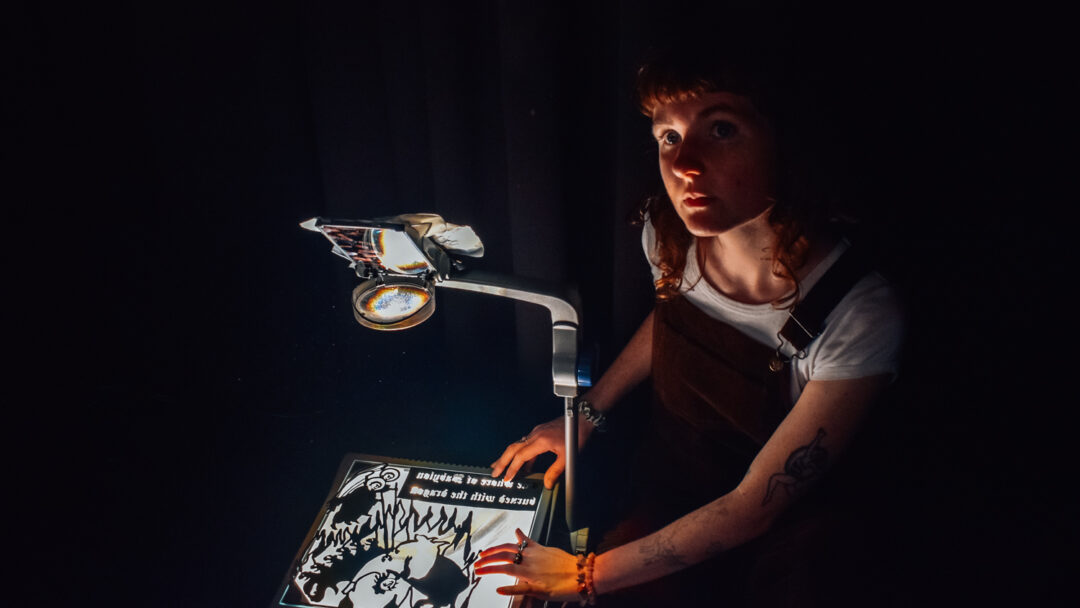
What does the future of disability storytelling look like?
The future of disability storytelling
Access Ideas and Insights by Accessible Arts
The future of disability storytelling
•42 mins
Video
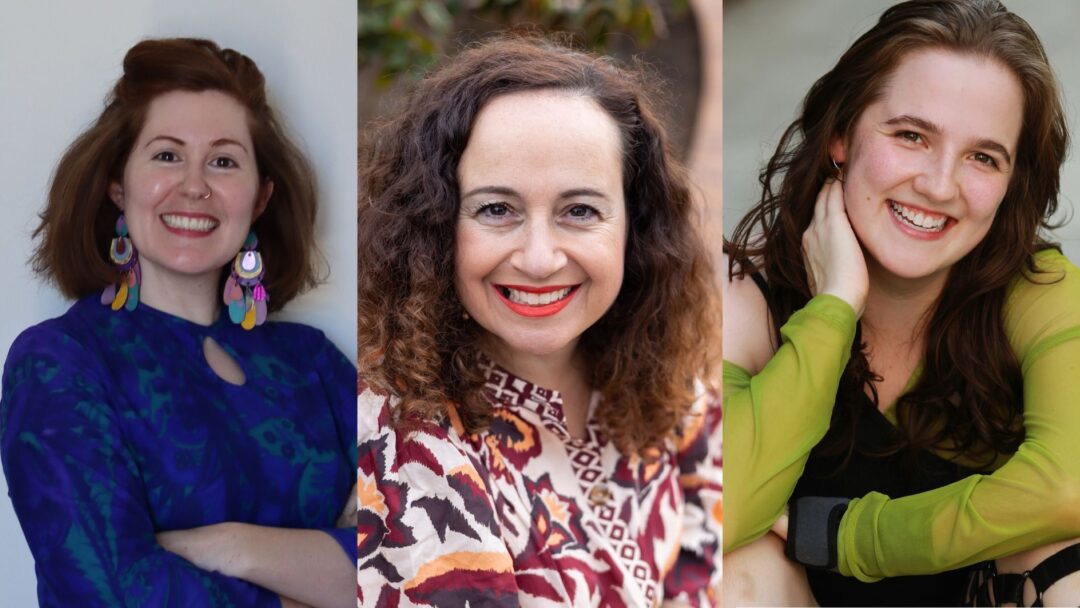
Accessible Curation
Accessible Curation
Access Ideas and Insights by Accessible Arts
Accessible Curation
•41 mins
Video
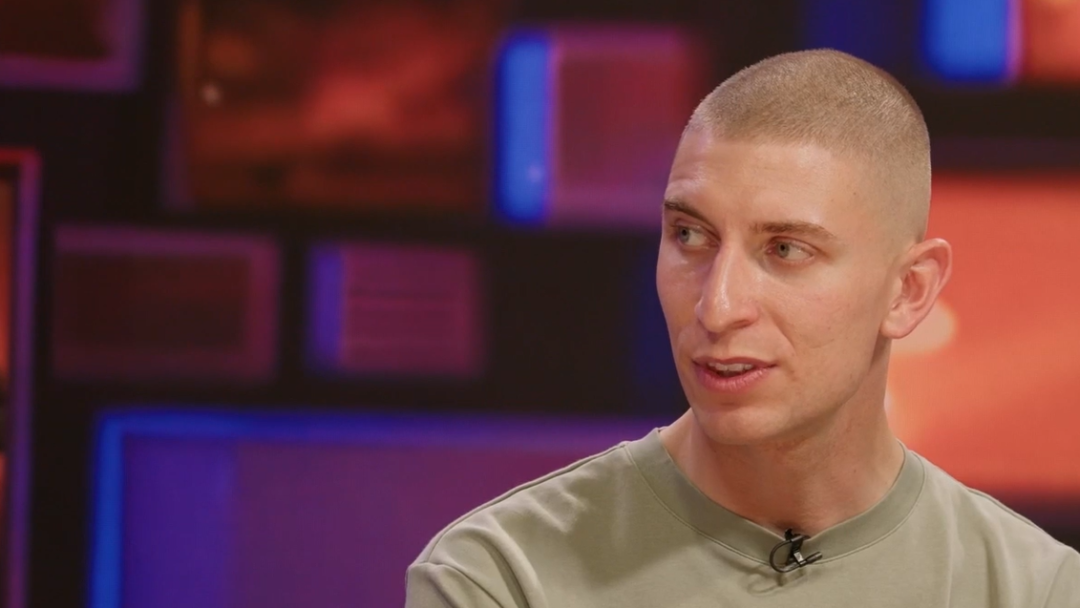
Carly Findlay and Jacob Darkin talk all things disability.
Reframed - Carly Findlay and Jacob Darkin
Reframed by Attitude Foundation
Carly Findlay and Jacob Darkin
•30 mins
Video

Sam Drummond and Sara Shams chat all things disability.
Reframed - Sam Drummond and Sara Shams
Reframed by Attitude Foundation
Sam Drummond and Sara Shams
•28 mins
Video
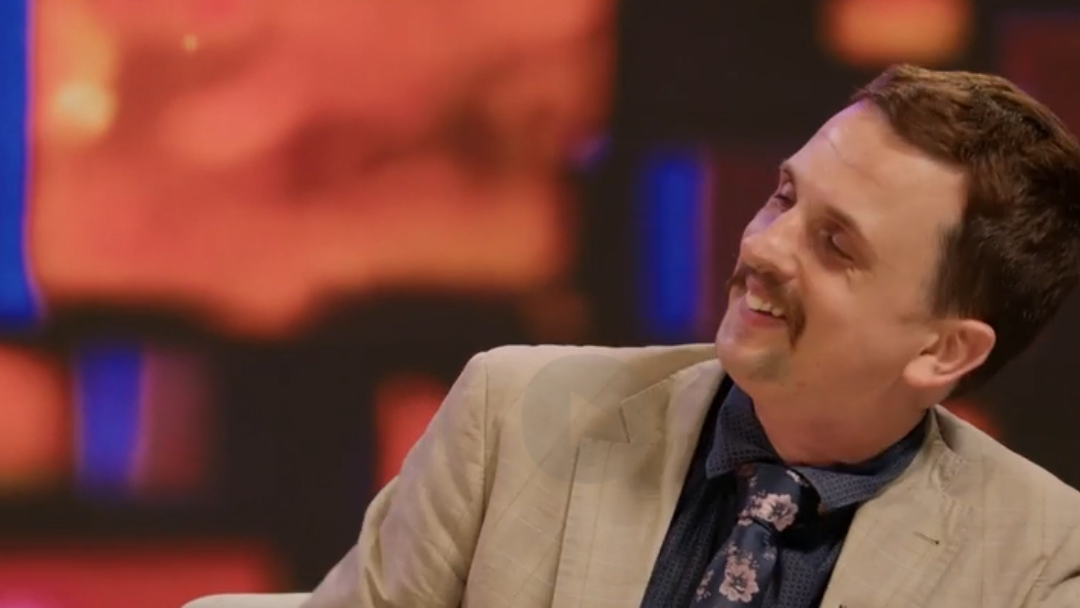
Reframed - Jasper Peach and John O'Donnell chat all things disability
Reframed - Jasper Peach and John O'Donnell
Reframed by Attitude Foundation
Jasper Peach and John O'Donnell
•30 mins
Video
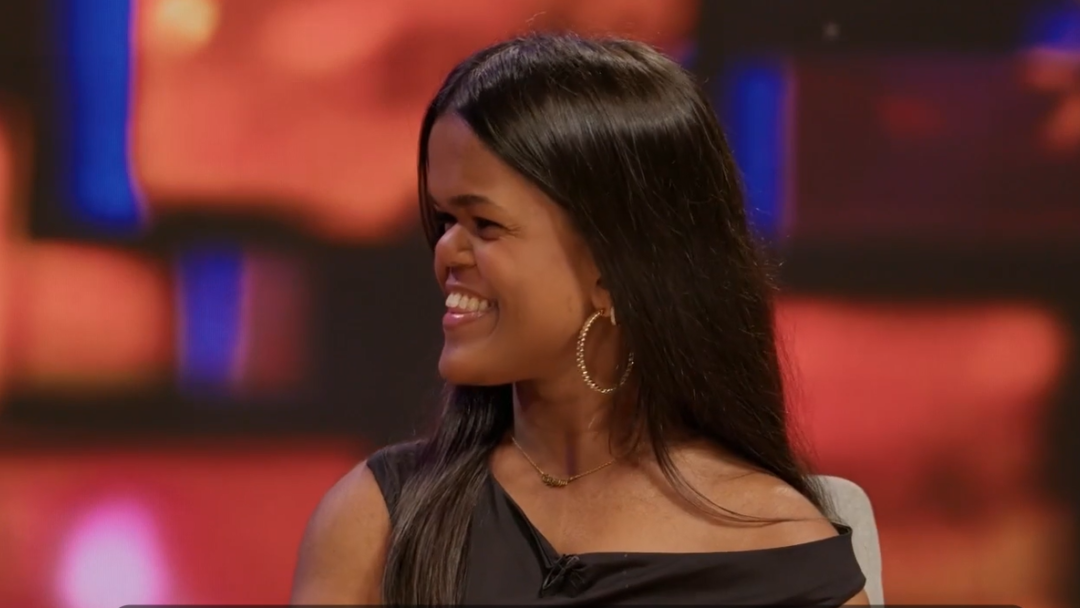
Jen Hargrave and Nethra Raman chat all things disability.
Reframed - Jen Hargrave and Nethra Raman
Reframed by Attitude Foundation
Jen Hargrave and Nethra Raman
•31 mins
Video
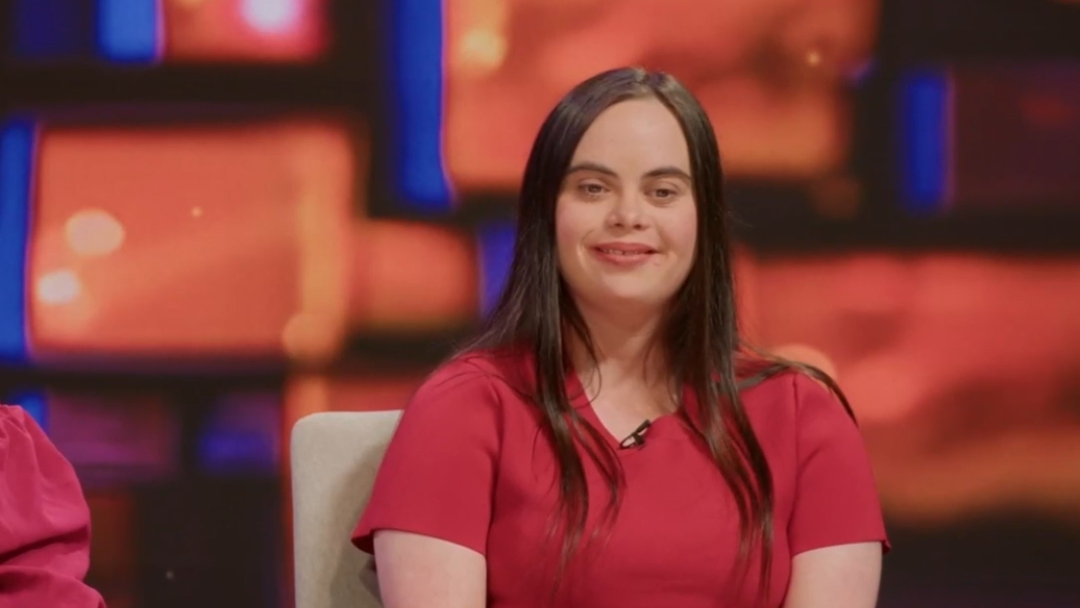
Zoe Simmons + Olivia Hargroder discuss life with disabilities.
Reframed - Zoe Simmons + Olivia Hargroder
Reframed by Attitude Foundation
Zoe Simmons + Olivia Hargroder
•29 mins
Video

Emma Myers + Prue Stevenson discuss life with disabilities.
Reframed - Emma Myers + Prue Stevenson
Reframed by Attitude Foundation
Emma Myers + Prue Stevenson
•26 mins
Video

Lively discussion of media disability representation - with experienced and expert guests.
Reframed - Mandy McCracken and Luke King
Reframed by Attitude Foundation
Mandy McCracken and Luke King
Video

Lively discussion of media disability representation - with experienced and expert guests.
Episode 6 - Sam Drummond and Sara Shams
Reframed by Attitude Foundation
Episode 6
•28 mins
Video

A new way to approach reform – through conversations and collaboration to deliver real solutions and change for people with disability.
Disability Dialogue - Belonging
Disability Dialogue by Disability Dialogue
Belonging
•57 mins
Video

Experienced guests Olivia Muscat and James Parr join our hosts in lively discussion of disability representation im media.
Episode 5 – Olivia Muscat and James Parr
Reframed by Attitude Foundation
Episode 5
•27 mins
Video

A writer-comedian and a Global Studies student help our hosts grapple with how media portrays disability.
Reframed - Episode 4 - Alistair Baldwin, Kaed Dawber
Reframed by Attitude Foundation
Episode 3
Video

Two experienced performers and disability advocates look at disability representation in some popular media with our hosts.
Reframed - Episode 3 – Dinesh Palipana, Rita Havea
Reframed by Attitude Foundation
Episode 3 – Dinesh Palipana, Rita Havea
•25 mins
Video

Two experienced performers and disability advocates look at disability representation in some popular media with our hosts.
Reframed - Episode 2 – Madeleine Stewart and Caroline Bowditch
Reframed by Attitude Foundation
Episode 2 – Madeleine Stewart and Caroline Bowditch
•30 mins
Video

A panel including a champion para-athlete and a dancer with disability take a lively look at disability representations in media.
Reframed - Episode 1 - Elvin Lam and Liz Wright
Reframed by Attitude Foundation
Elvin Lam and Elizabeth Wright
•26 mins
Video

Phoebe, Shannon, and Zoe discuss all things disability pride - with guests.
All In - Episode 6
All In by Attitude Foundation
Episode 6
•27 mins
Video

Shannon, Niki and Adam with Brimbank City Deputy Mayor Dr Victoria Borg and Janice Florence from Arts Access Victoria.
All In - Episode 5
All In by Attitude Foundation
Episode 5
•28 mins
Video

Community TV's hands-on training ground for the future.
Channel 31: training future media superstars
Access Community Media by Powerd Team
Channel 31: training future media superstars
•7 mins
Video

Zoe, John, and Lachlan talk to musician Saint Ergo and discuss the film A Scanner Darkly.
All In - Episode 4
All In by Attitude Foundation
Episode 4
•29 mins
Video

Shannon, Adam, and Niki catch up on news and review the ABC series Plum.
All In - Episode 3
All In by Attitude Foundation
Episode 3
•26 mins
Video

Zoe, John, and Lachlan chat to singer Charlie Lane, as well as lasting impacts of the Disability Royal Commission.
All In - Episode 2
All In by Attitude Foundation
Episode 2
•26 mins
Video

Nikki, John, and Adam discuss Ability Fest and the Prime Minister's slur in Parliament.
All In - Episode 1
All In by Attitude Foundation
Episode 1
•24 mins
Video

Paralympian Stella Barton shares her favourite space with Sam Drummond
Spaces - Stella Barton
Spaces by Sam Drummond
Episode 1 - Stella Barton
•35 mins
Video

A talk show giving neurodivergent folks a space to be all that they are. Guests: Eden Swan and Themme Fatale.
Unmasked - Episode 6
Unmasked by Jasper Peach
Episode 6
•37 mins
Video

A talk show giving neurodivergent folks a space to be all that they are. Guests: Polly Bennett and Clem Bastow.
Unmasked - Episode 5
Unmasked by Jasper Peach
Episode 5
•33 mins
Video

A talk show giving neurodivergent folks a space to be all that they are. Guests: Teneille Clerke and Antonia Sellbach.
Unmasked - Episode 4
Unmasked by Jasper Peach
Episode 4
•34 mins
Video

A talk show giving neurodivergent folks a space to be all that they are. Guests: Beau Windon and Kaya Wilson.
Unmasked - Episode 3
Unmasked by Jasper Peach
Episode 3
•32 mins
Video

A talk show giving neurodivergent folks a space to be all that they are. Guests: Anna Spargo-Ryan and Flis Marlowe.
Unmasked - Episode 2
Unmasked by Jasper Peach
Episode 2
•30 mins
Video

A talk show giving neurodivergent folks a space to be all that they are. Guests: Damon Smith and Our Carlson.
Unmasked - Episode 1
Unmasked by Jasper Peach
Episode 1
•34 mins
Video

Disability activist Emma Bennison speaks about barriers to interaction.
I'm Not Contagious
Emma Bennison
12 mins
Video